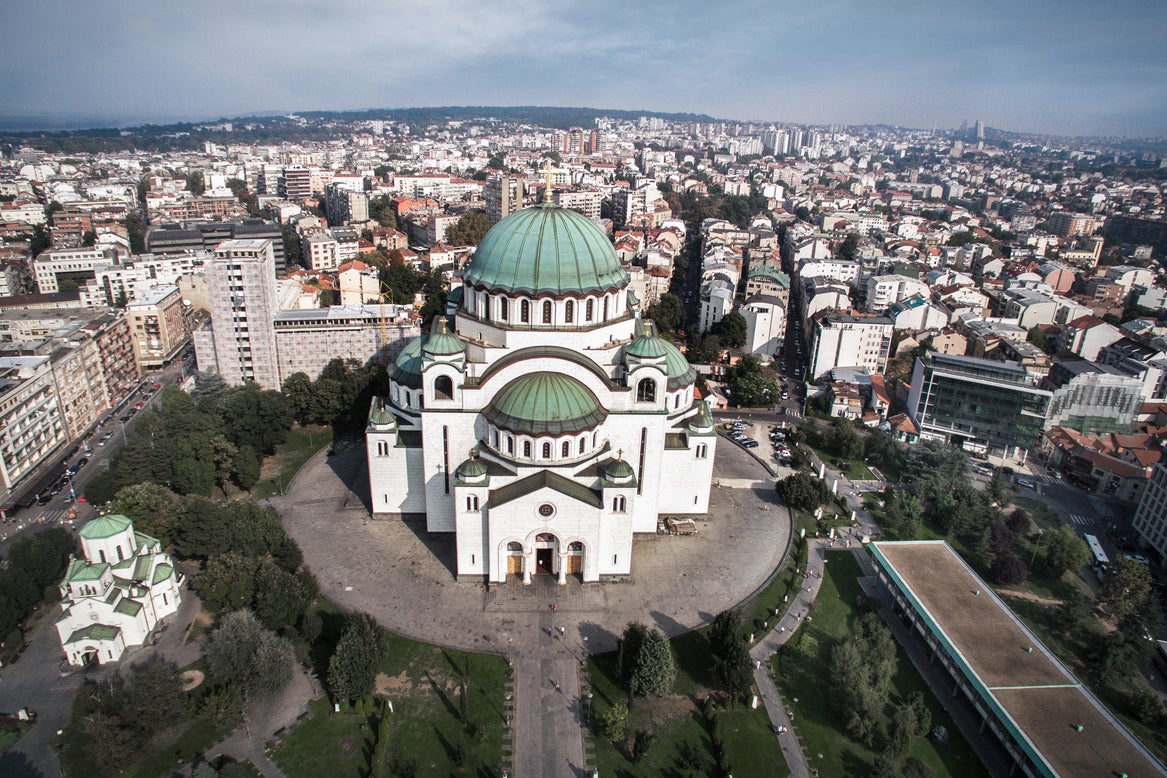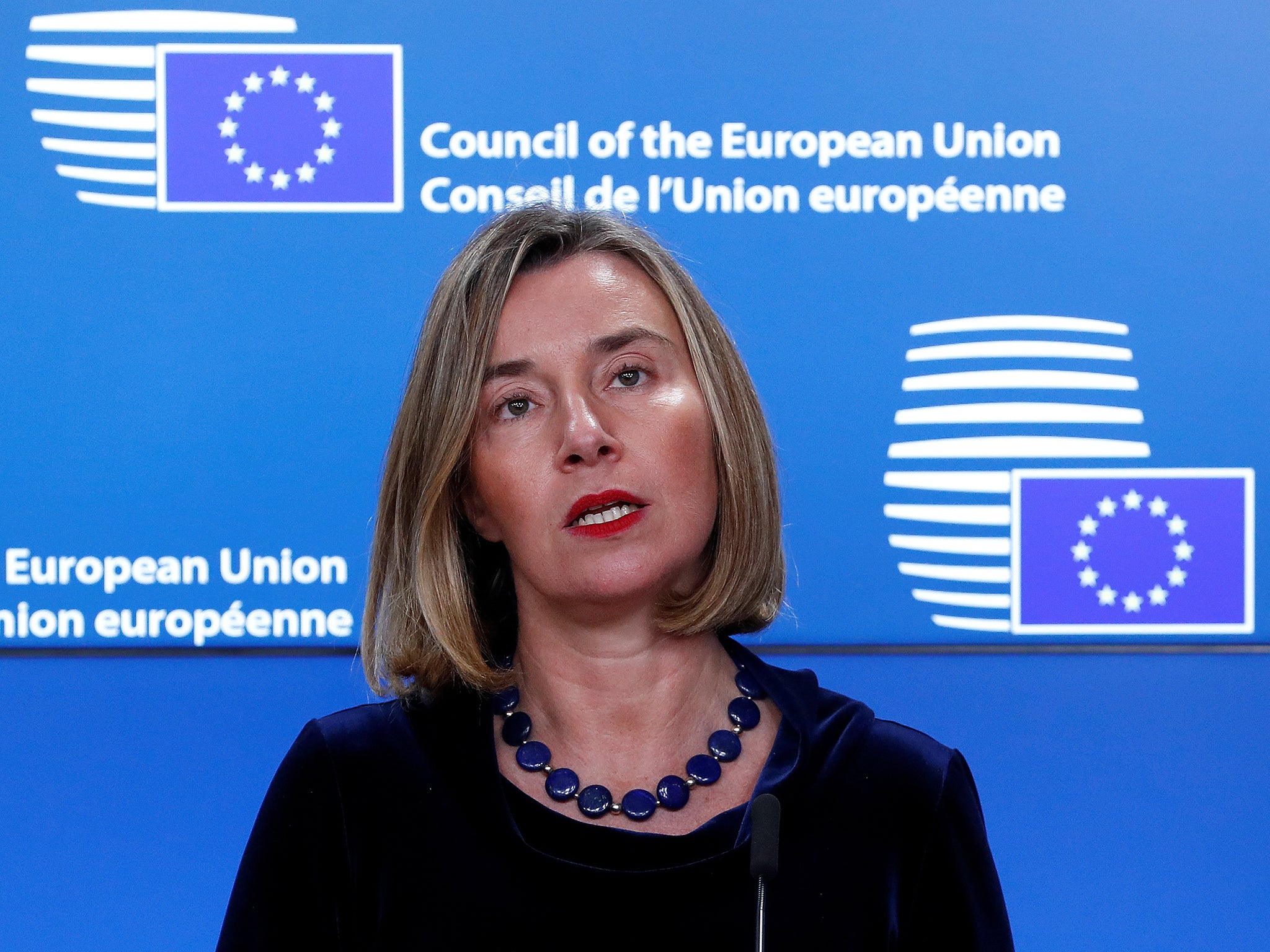Your support helps us to tell the story
From reproductive rights to climate change to Big Tech, The Independent is on the ground when the story is developing. Whether it's investigating the financials of Elon Musk's pro-Trump PAC or producing our latest documentary, 'The A Word', which shines a light on the American women fighting for reproductive rights, we know how important it is to parse out the facts from the messaging.
At such a critical moment in US history, we need reporters on the ground. Your donation allows us to keep sending journalists to speak to both sides of the story.
The Independent is trusted by Americans across the entire political spectrum. And unlike many other quality news outlets, we choose not to lock Americans out of our reporting and analysis with paywalls. We believe quality journalism should be available to everyone, paid for by those who can afford it.
Your support makes all the difference.Serbia and Montenegro could be set to join the European Union as early as 2025, according to a new action plan launched by Brussels.
The EU enlargement plan for the Western Balkans, presented by the European Commission on Tuesday, offers a path to membership for the two Balkan states as well as their neighbours Macedonia, Albania and Bosnia.
To join by 2025 both Serbia and Montenegro would have to improve their rule of law and governance, while Serbia would also have to urgently normalise its diplomatic relations with its neighbour Kosovo.
Because of the region’s difficult politics, the new strategy also calls for measures to stop Balkan countries that make it into the EU first from being able to veto the membership of neighbouring countries who want to join after.
Concerns about the countries’ internal political systems have also led the Commission to stipulate that a “more effective system” of tackling rule of law breaches in member states should be in place EU-wide before states from the Western Balkans are admitted.
That latter demand comes as the EU struggles with alleged rule of law breaches relating to Poland’s judiciary on the other side of the continent.
Serbia and Montenegro are already official EU candidate countries and have started the negotiating process with the bloc. Albania and Macedonia are also formal candidates but have not yet opened talks, despite having signed association agreements.
Bosnia is not yet a candidate country but signed an association agreement with the EU in 2015 and has applied to be one. Kosovo has yet to apply, partly because of its disputed status.
Each of the Western Balkan countries outside the EU suffers from unique obstacles to joining. Macedonia’s naming dispute with Greece counts against it, while Serbia’s relatively recent hostilities with Kosovo still linger in the air.
Albania, meanwhile, suffers from serious organised crime and corruption problems, and Bosnia’s constitution is not considered in line with the EU’s democratic requirements.
“In order to meet the well-established membership criteria and in their own interest, the Western Balkans need to implement comprehensive reforms in crucial areas,” the Commission states.
“The rule of law, fundamental rights and governance must be strengthened significantly. Judicial reforms, the fight against corruption and organised crime, and public administration reform need to deliver real results and the functioning of democratic institutions needs to be seriously enhanced. Economic reforms must be pursued with vigour and structural weaknesses, low competitiveness and high unemployment addressed.

“All countries must unequivocally commit, in both word and deed, to overcoming the legacy of the past, by achieving reconciliation and solving open issues well before their accession to the EU, in particular border disputes.”
Federica Mogherini, the EU’s foreign affairs chief, told reporters: “The Western Balkans are part of Europe geographically. Within the member states of the European Union, from a geographical point of view, the Western Balkans share the same history as members of the European Union – the same cultural heritage, the same challenges, the same interests, the same opportunities.
“I would say it is clear today that we will share a common future inside our European Union. This is the key strategy we just adopted in the Western Balkans – clear path for all our six partners in the Western Balkans to finally join the European Union.”
On the 2025 date, she said: “It is clear for us, this is not a target date, it is not a deadline date, it is a perspective. It is a realistic perspective for those who are negotiating and also for others who might start negotiations. Personally I would expect others to start negations in coming months.”
Other than the Western Balkans, Turkey has also been a candidate country since 1999, but talks have effectively stopped due to the increasing rift between the Turkish government and the EU. Senior European leaders like Angela Merkel have also said they would veto Turkish accession.

Join our commenting forum
Join thought-provoking conversations, follow other Independent readers and see their replies
Comments